News
Are you ready for TEK? – A guide to evaluating the Training, Equipment and Knowledge required for starting technical diving
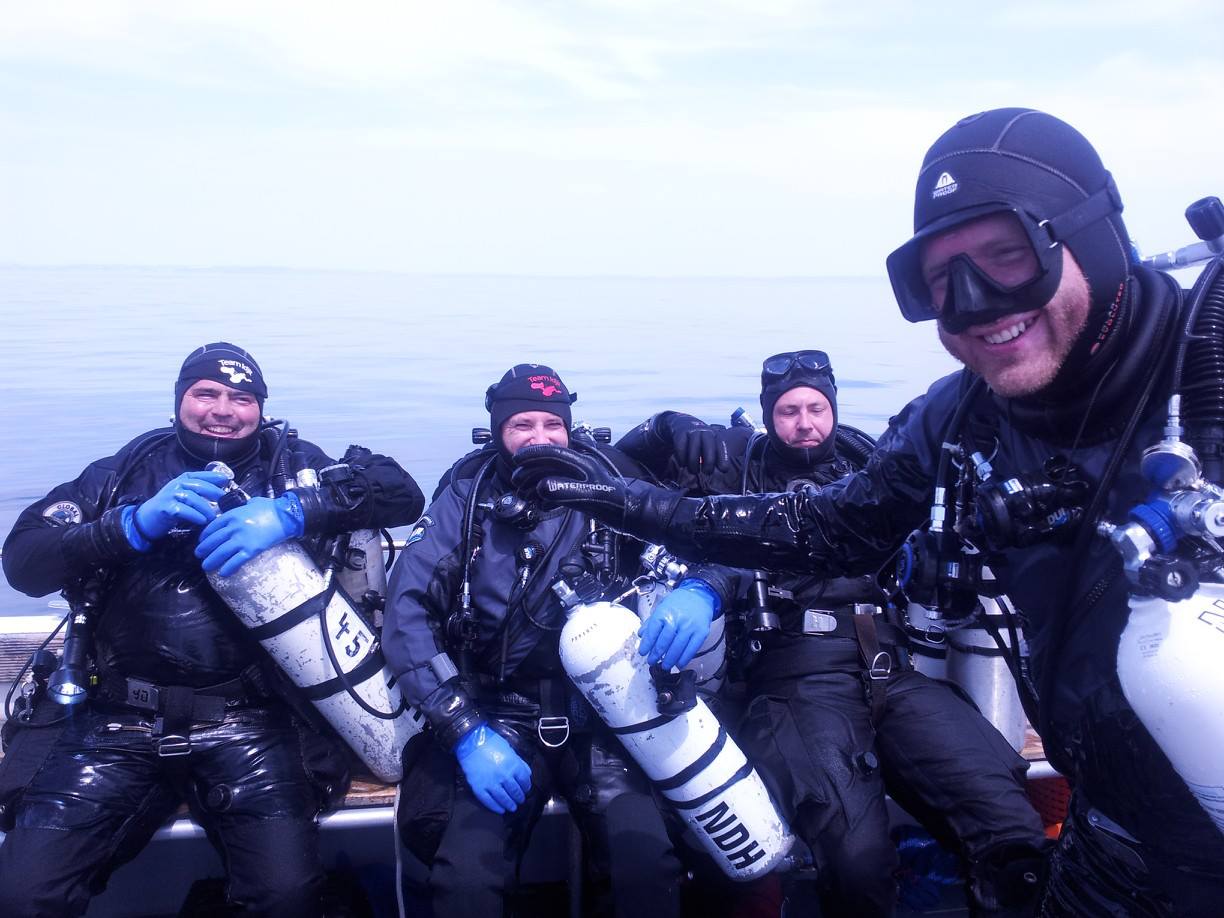
Part 1 – Training
What was once out of reach to everyone but a select few is now part of the mainstream in many sports and diving is no exception. Caves and ocean depths that were until recently accessible only by experts with a lifetime of training can now be touched by those eager amateurs prepared to invest in training and equipment that is now widely available.
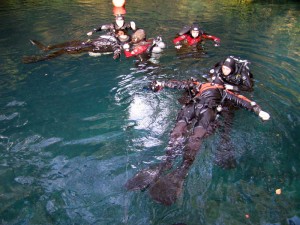 However the increased availability of this specialised training and equipment presents us with a double edged sword. On one side are those who are prepared to make a long term investment and gain the right tools to safely enjoy diving in some incredible and extreme locations not accessible to 99% of the diving community. One the other side there are divers seeking short cut training modelled on mainstream recreational courses. This often results in inadequate training, equipment and experience that can cause them to end up in situations and locations that they will realise they are ill prepared for far too late.
However the increased availability of this specialised training and equipment presents us with a double edged sword. On one side are those who are prepared to make a long term investment and gain the right tools to safely enjoy diving in some incredible and extreme locations not accessible to 99% of the diving community. One the other side there are divers seeking short cut training modelled on mainstream recreational courses. This often results in inadequate training, equipment and experience that can cause them to end up in situations and locations that they will realise they are ill prepared for far too late.
So in a series of three articles I wanted to explore the three key areas of training, equipment and knowledge (TEK) that a diver should carefully consider before starting a progression down this route.
How do you get the Training?
#1 – Do your research. Who is doing the diving you want to do and how did they get trained?
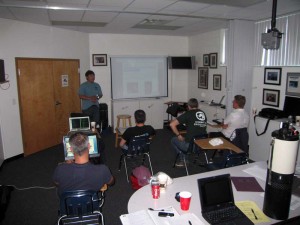 I made a number of early decisions at the start of my technical diving career based on two areas of information. I read voraciously about the sorts of diving I wanted to do. Tales of North East US deep wrecks and North Florida caves in the 80’s & 90’s led me to leading lights of those scenes and then I looked at how they gained their experience and training. Fortunately by the time I started down this route in 2008 things were a little more organised than the early days of deep wreck and cave diving! Today you can easily research the divers, agencies and instructors and find out if, what and how they are doing things appeals to you. There are huge online resources to get your grey matter going, however be aware of polarised ‘internet opinions’ as they will hold you back.
I made a number of early decisions at the start of my technical diving career based on two areas of information. I read voraciously about the sorts of diving I wanted to do. Tales of North East US deep wrecks and North Florida caves in the 80’s & 90’s led me to leading lights of those scenes and then I looked at how they gained their experience and training. Fortunately by the time I started down this route in 2008 things were a little more organised than the early days of deep wreck and cave diving! Today you can easily research the divers, agencies and instructors and find out if, what and how they are doing things appeals to you. There are huge online resources to get your grey matter going, however be aware of polarised ‘internet opinions’ as they will hold you back.
#2 – Get your basic dive skills nailed. You need to be solid before building complex skills.
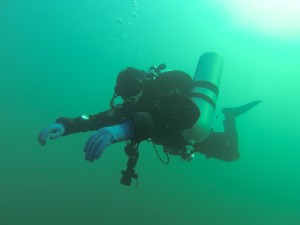 Finding a baseline of where you are today is vital before considering developing complex new skills. You may think your basic skills such as trim, buoyancy control and propulsion are pretty good (everyone’s is right?) but the reality is they probably fall short of the entry point of many technical or cave classes. During training you will be expected to remain in a flat (trim) static position in mid water (not kneeling!) and this can prove difficult even for experienced divers. A technical diver will be able to maintain trim within a 15 degree window, buoyancy with a 1m window even when task loaded such as performing a gas switch, sharing gas or manipulating a valve. Have you ever wondered why the visibility behind you is so bad? So you will also need a range of kicks designed to not disturb silt and be able to manoeuvre in a confined space. The fact is none of these basic dive skills are naturally occurring and you really need an experienced technical diver who is also an instructor to give you structured feedback and develop your basic skills. You should consider a foundational course from an agency with an established technical curriculum such as GUE fundamentals before moving on.
Finding a baseline of where you are today is vital before considering developing complex new skills. You may think your basic skills such as trim, buoyancy control and propulsion are pretty good (everyone’s is right?) but the reality is they probably fall short of the entry point of many technical or cave classes. During training you will be expected to remain in a flat (trim) static position in mid water (not kneeling!) and this can prove difficult even for experienced divers. A technical diver will be able to maintain trim within a 15 degree window, buoyancy with a 1m window even when task loaded such as performing a gas switch, sharing gas or manipulating a valve. Have you ever wondered why the visibility behind you is so bad? So you will also need a range of kicks designed to not disturb silt and be able to manoeuvre in a confined space. The fact is none of these basic dive skills are naturally occurring and you really need an experienced technical diver who is also an instructor to give you structured feedback and develop your basic skills. You should consider a foundational course from an agency with an established technical curriculum such as GUE fundamentals before moving on.
#3 – Be prepared to pay and be prepared to not pass. If you see a ‘cheap’ technical class with a 100% pass rate, run.
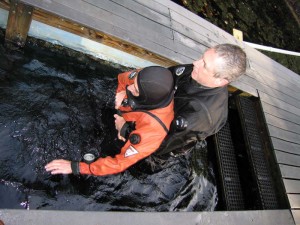 The sorts of class you are looking at are probably quite a bit more money and longer than your basic dive classes. For example most ‘normoxic’ trimix and basic cave classes are between 5-6 days and there will be a gas bill at the end of it! You may even have to travel and pay for boat costs. It can quickly add up and add to personal pressure to ‘perform’.
The sorts of class you are looking at are probably quite a bit more money and longer than your basic dive classes. For example most ‘normoxic’ trimix and basic cave classes are between 5-6 days and there will be a gas bill at the end of it! You may even have to travel and pay for boat costs. It can quickly add up and add to personal pressure to ‘perform’.
Your instructor will also fully understand the environment they are teaching you to dive in and will not accept second best. This means no matter how much you have spent they simply will not pass you if you don’t make the grade.
#4 – Make sure your instructor is an active diver. You want real experience, not training slates.
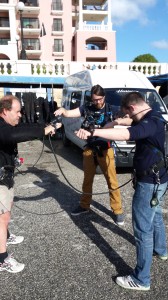 I have already mentioned the cost of training at this level. You are for the most part paying for that instructor’s experience as much you are paying for their time. A good instructor should be diving above the level that they are teaching, so they will be bringing a huge amount of personal diving experience to your class. Many instructors only teach and this brings nothing to this type of diving. The best instructors I know work hard to maintain a balance between being active divers and educators.
I have already mentioned the cost of training at this level. You are for the most part paying for that instructor’s experience as much you are paying for their time. A good instructor should be diving above the level that they are teaching, so they will be bringing a huge amount of personal diving experience to your class. Many instructors only teach and this brings nothing to this type of diving. The best instructors I know work hard to maintain a balance between being active divers and educators.
In the next part of this series I will be looking at the equipment required for technical and cave training. Are you prepared to change your entire configuration right down to your fins?
James teaches exclusively as a GUE (Global Underwater Explorers) instructor for TecLife (www.divelife.co.uk).
News
Dive Worldwide Announces Bite-Back as its Charity of the Year

Over the next 12 months, specialist scuba holiday company Dive Worldwide will be supporting Bite-Back Shark & Marine Conservation with donations collected from client bookings to any one of its stunning dive destinations around the world. The independently-owned operator expects to raise £3000 for the UK charity.
Manager at Dive Worldwide, Phil North, said: “We’re especially excited to work with Bite-Back and support its intelligent, creative and results-driven campaigns to end the UK trade in shark products and prompt a change in attitudes to the ocean’s most maligned inhabitant.”
Bite-Back is running campaigns to hold the media to account on the way it reports shark news along with a brand new nationwide education programme. Last year the charity was credited for spearheading a UK ban on the import and export of shark fins.
Campaign director at Bite-Back, Graham Buckingham, said: “We’re enormously grateful to Dive Worldwide for choosing to support Bite-Back. The company’s commitment to conservation helps set it apart from other tour operators and we’re certain its clients admire and respect that policy. For us, the affiliation is huge and helps us look to the future with confidence we can deliver against key conservation programmes.”
To launch the fundraising initiative, Phil North presented Graham Buckingham with a cheque for £1,000.
Visit Dive Worldwide to discover its diverse range of international scuba adventures and visit Bite-Back to learn more about the charity’s campaigns.
MORE INFORMATION
Call Graham Buckingham on 07810 454 266 or email graham@bite-back.com
Gear News
Scubapro Free Octopus Promotion 2024
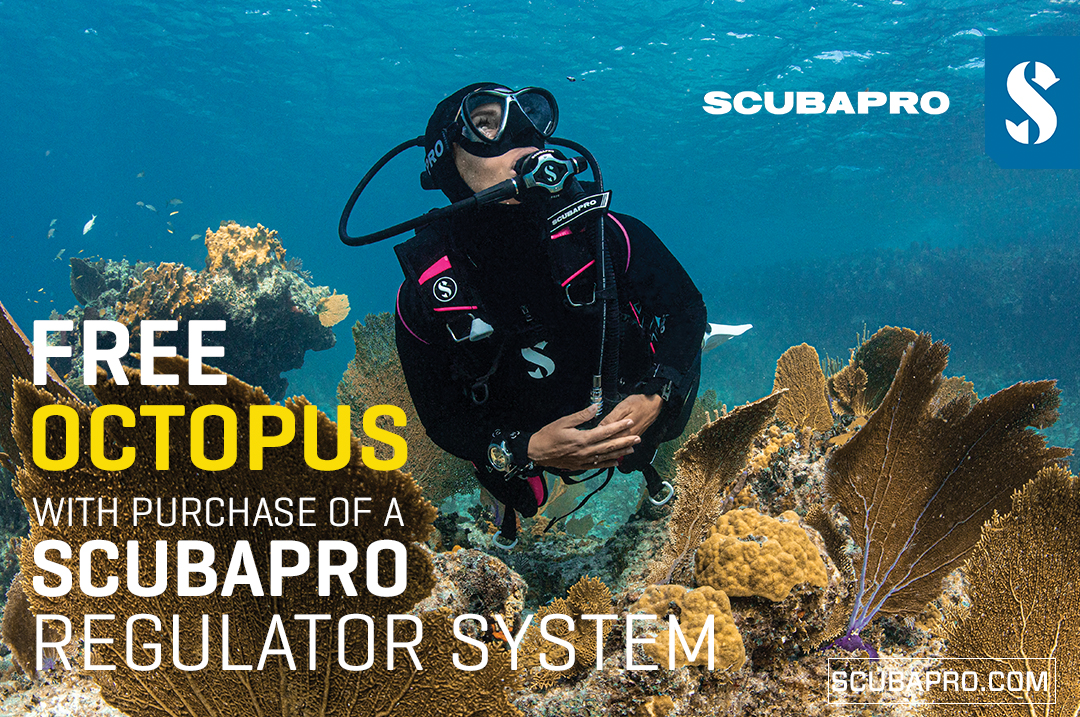
Free Octopus with every purchase of a SCUBAPRO regulator system
Just in time for the spring season, divers can save money with the FREE OCTOPUS SPRING PROMOTION! Until July 31st SCUBAPRO offers an Octopus for free
with every purchase of a regulator system!
Get a free S270 OCTOPUS with purchase of these combinations:
MK25 EVO or MK19 EVO with A700
MK25 EVO or MK19 EVO with S620Ti
MK25 EVO or MK19 EVO with D420
MK25 EVO Din mit S620Ti-X
Get a free R105 OCTOPUS with purchase of the following combinations:
MK25 EVO or MK19 EVO with G260
MK25 EVO or MK17 EVO with S600
SCUBAPRO offers a 30-year first owner warranty on all regulators, with a revision period of two years or 100 dives. All SCUBAPRO regulators are of course certified according to the new European test standard EN250-2014.
Available at participating SCUBAPRO dealers. Promotion may not be available in all regions. Find an authorized SCUBAPRO Dealer at scubapro.com.
More information available on www.scubapro.com.
-

 News3 months ago
News3 months agoHone your underwater photography skills with Alphamarine Photography at Red Sea Diving Safari in March
-

 News3 months ago
News3 months agoCapturing Critters in Lembeh Underwater Photography Workshop 2024: Event Roundup
-

 Marine Life & Conservation Blogs3 months ago
Marine Life & Conservation Blogs3 months agoCreature Feature: Swell Sharks
-

 Blogs2 months ago
Blogs2 months agoMurex Resorts: Passport to Paradise!
-

 Blogs2 months ago
Blogs2 months agoDiver Discovering Whale Skeletons Beneath Ice Judged World’s Best Underwater Photograph
-

 Marine Life & Conservation2 months ago
Marine Life & Conservation2 months agoSave the Manatee Club launches brand new webcams at Silver Springs State Park, Florida
-

 Gear Reviews3 months ago
Gear Reviews3 months agoGear Review: Oceanic+ Dive Housing for iPhone
-

 Gear Reviews2 weeks ago
Gear Reviews2 weeks agoGEAR REVIEW – Revolutionising Diving Comfort: The Sharkskin T2 Chillproof Suit
















